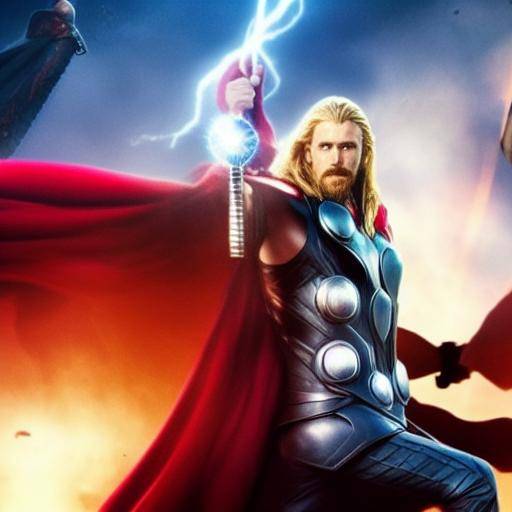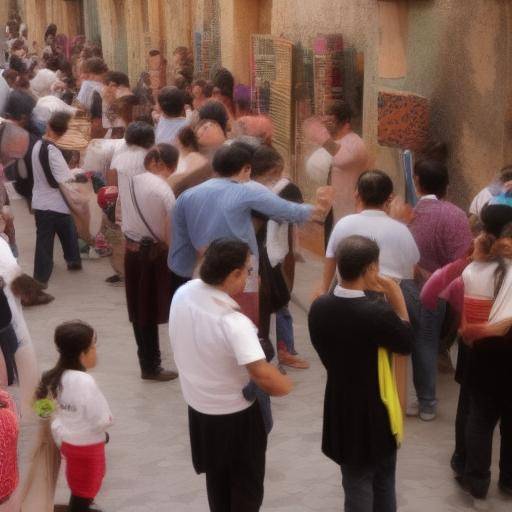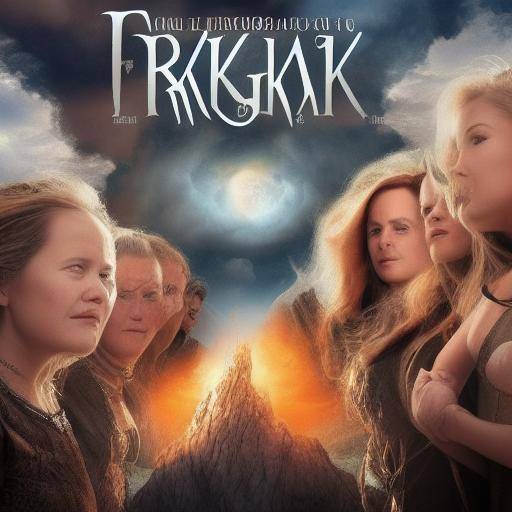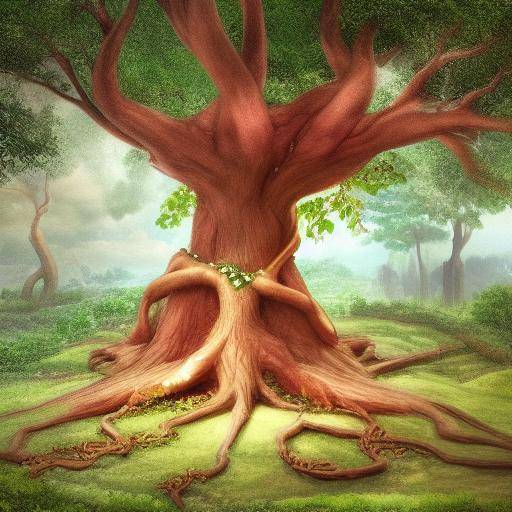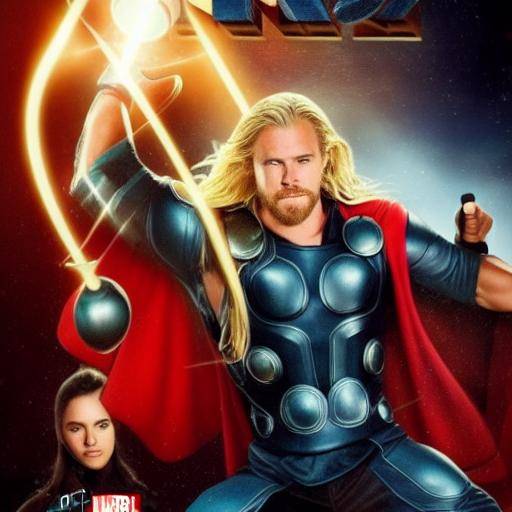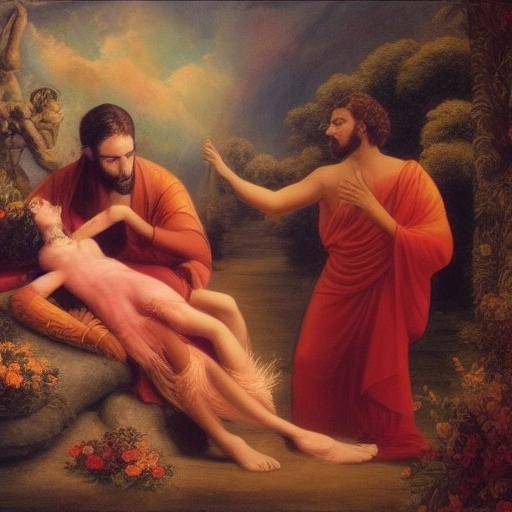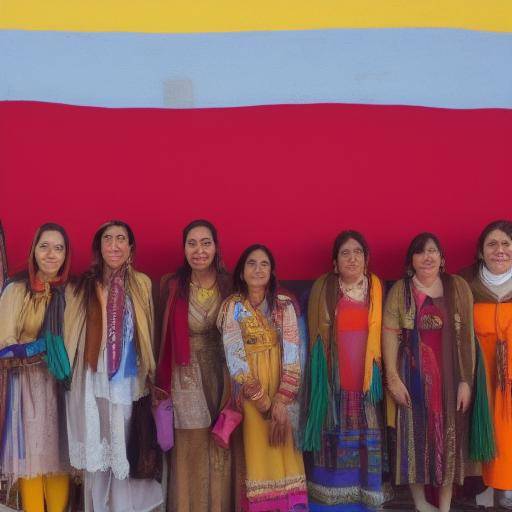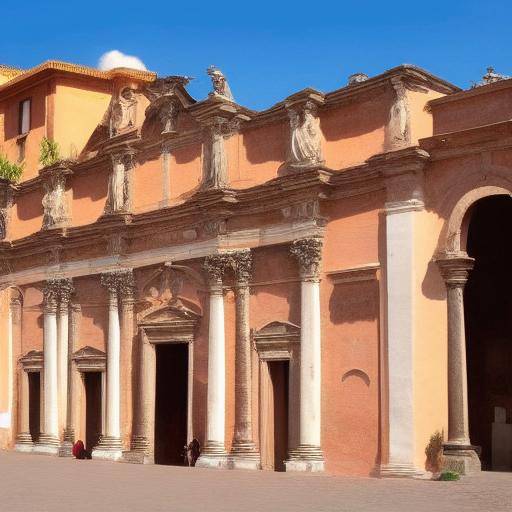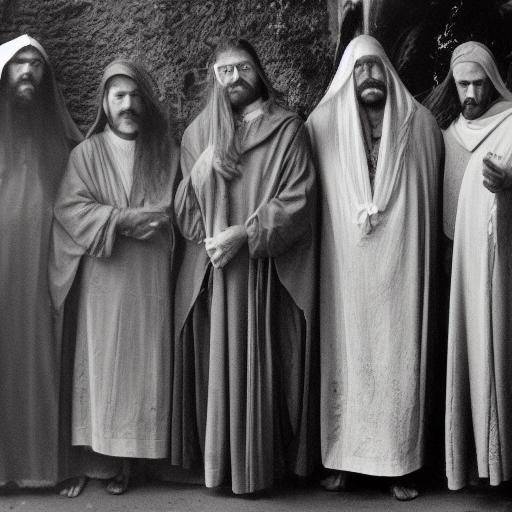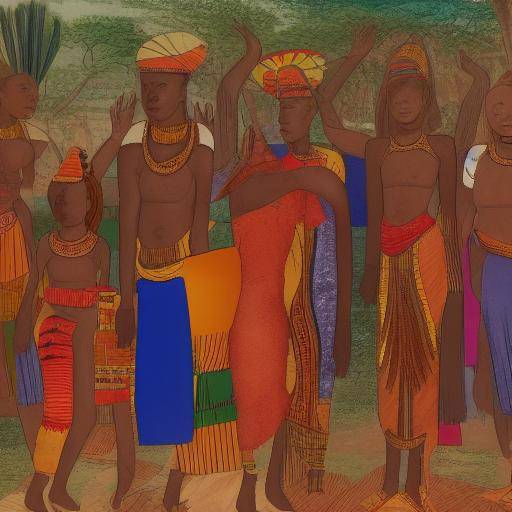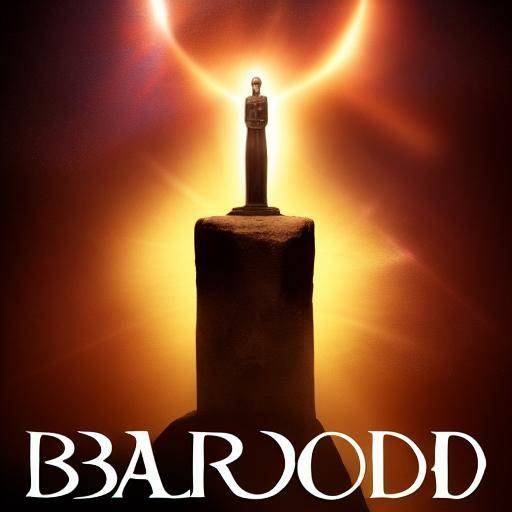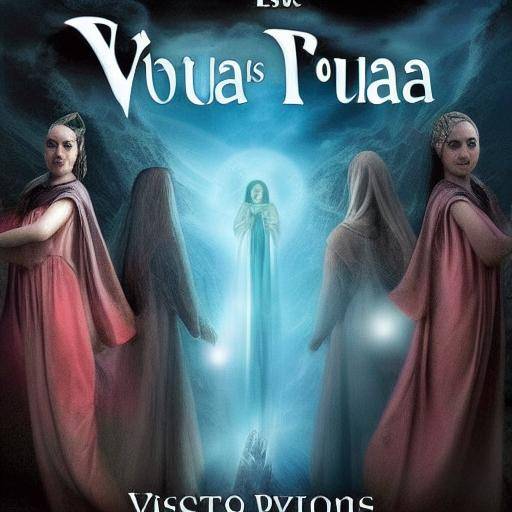
In the Nordic mythology, prophecy is intertwined with destiny, creating a canvas of visions and certainties that impact the becoming of gods, humans and the universe. In the heart of these transcendental narratives is "Völuspá", an epic poem that relates the past, present and future according to the vidente völva. This article offers an immersion in the depths of Nordic prophecies, exploring the fascinating intersection of "Völuspá", Nordic mythology and the projections of destiny.
Introduction
The premonitory power of prophecies has captured the imagination of cultures throughout history, and Nordic mythology is no exception. In this article, we will explore the prophecies of "Völuspá" and its meaning in the context of Nordic mythology. From the origin of prophetic narratives to their influence in the conception of destiny, we will unravel the halo of mystery that surrounds these visions of the past, present and future.
History and Background
The Nordic mythology, rooted in the traditions of Scandinavian peoples, is a rich tapestry of stories that includes deities such as Odin, Thor and Loki. In this context, "Völuspá" emerges as a poem of profound meaning, attributed to the vidente völva who shares his visions with the community. This poem, preserved in the Icelandic manuscript "Codex Regius", unfolds prophecies in a poetic language that transcends time and space.
The visionary character of "Völuspá" offers a unique window to the Nordic worldview, revealing the connections between the origin of the world, the nature of the gods and the ultimate destiny of all things. Through the verses of this poem, we witness cosmic conflicts, cataclysms and renewals, woven with the fabric of prophecies that guide the course of events.
Analysis in Deep
Prophecies, as manifestations of divine knowledge, transcend linear time, projecting alternative realities and transcendental truths. In the context of "Völuspá", these visions are intertwined with the will of the gods and the fate of mortal beings, generating a network of meanings that permeate the Nordic mythology.
By exploring the prophecies of "Völuspá", we enter into a symbolic universe where the past, present and future converge in an eternal cycle of creation and destruction. These visions offer a deeper understanding of the acts and decisions of the gods and mortals, revealing the plot of destiny that influences all beings.
Comprehensive review
The prophecies of "Völuspá", in their projection of the destiny of the gods and the world, invite us to reflect on the role of prophetic vision in the Nordic mythology. The interaction between divinities, natural forces and human beings, managed through prophecies, moulds the course of history and the ultimate destiny of all things.
The exhaustive analysis of these prophecies reveals its transversal influence on the Nordic mythical narratives, as well as its relevance in the understanding of personal and collective destiny. By exploring the prophecies of "Völuspá" in the light of its broader implications, we unravel the complexities of time, causality and power of prophetic vision in Nordic mythology.
Comparative analysis
In the context of Nordic mythology, the prophecies of "Völuspá" are intertwined with a broader narrative framework, including a pantheon of gods, mythical creatures and heroes. In contrast to other prophetic traditions, the visions contained in "Völuspá, Nordic mythology and prophecies reflect the unique vision of the völva seer, in which destiny intertwines with human and divine action, revealing a tapestry of certainty and possibilities.
Practical Tips and Accessible Tips
Understanding the prophecies of "Völuspá" and its relevance in Nordic mythology offers a unique perspective on the interaction between the visions of destiny and the actions of divine and mortal beings. In considering the influence of these prophecies in the understanding of destiny and decision-making, it is crucial to maintain a balance between the acceptance of predestined destiny and the power of proactive action.
Some practical tips to address the prophecies of "Völuspá" and Nordic mythology include:
- Explore the connections between the prophecies and the actions of the gods, highlighting the interdependence between the vision of destiny and divine intervention.
- Analyze the implications of prophecies in the understanding of time, causality and the evolution of gods and humanity.
- Consider prophecies as sources of reflection on the possibilities and limitations of destiny, encouraging contemplation of the influence of premonitory visions in decision-making.
Conclusion
The prophecies of "Völuspá" echo in the heart of Nordic mythology, weaving a tapestry of visions and destinies that transcend time and space. From the vidente völva to the projections of destiny, these narratives reveal the depth of the Nordic understanding of the cosmic and human becoming. By exploring the prophecies of "Völuspá", we have unraveled the threads of prophetic vision and its influence on the understanding of destiny in Nordic mythology.
Frequently asked questions (FAQs)
1. Who is the vidente völva in the Nordic mythology?
The vidente völva plays a crucial role in Nordic mythology, as it acts as a mediator between the gods and human beings, offering visions of the past, present and future. Its prophetic capacity is a manifestation of divine knowledge and its role is fundamental in the transmission of prophecies such as those contained in "Völuspá".
2. What topics do the prophecies of "Völuspá" cover?
The prophecies of "Völuspá" cover a wide range of themes, including the origin of the world, the fate of the gods, the final cataclysm (Ragnarök) and the renewal of the cosmos. These visions project a cosmic panorama that reveals the interaction between divine, natural and human forces.
3. How do the prophecies of "Völuspá" influence the decisions of the gods and human beings?
The prophecies of "Völuspá" are fundamental elements in the formation of the destiny of the gods and human beings. These premonitory visions, in projecting cosmic demise, influence the actions and decisions of the gods and mortals, shaping the course of history and the ultimate destiny of all things.
4. What is the importance of prophecies in the context of Nordic mythology?
Prophecies play a central role in Nordic mythology by providing a vision of destiny that transcends human understanding and reveals the forces that guide the cosmic and human becoming. These prophetic visions offer a deeper understanding of the interaction between gods, natural forces and human beings.
5. What is the relationship between the prophecies of "Völuspá" and the concept of destiny in the Nordic mythology?
The prophecies of "Völuspá" are intertwined closely with the concept of destiny in the Nordic mythology, as they project the cosmic and human becoming, revealing a predefined destiny that interacts with the actions of the gods and human beings, generating a framework of meanings and possibilities.
6. How can we interpret the prophecies of "Völuspá" in the context of Nordic mythology?
The interpretation of the prophecies of "Völuspá" in Nordic mythology requires a profound understanding of mythical narratives, the Nordic cosmovision and the interaction between destiny, divinities and human beings. The consideration of prophecies as manifestations of divine knowledge and its influence on cosmic and human becoming enriches our understanding of prophetic vision in this context.
In short, the prophecies of "Völuspá" represent a unique manifestation of the premonitive visions in the Nordic mythology, offering an intricate perspective of destiny, divine and human actions, and the interaction between the past, present and future. This article has explored the depths of these prophecies, highlighting their relevance in the understanding of destiny in Nordic mythology.

